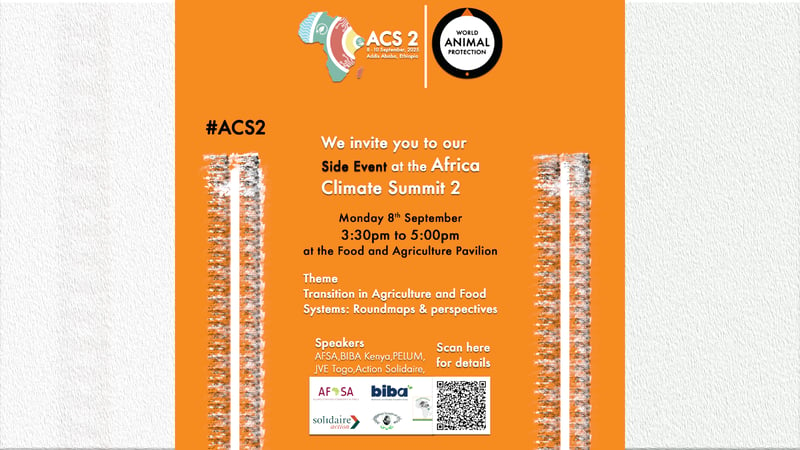
A Just Transition Must Tackle Agriculture and Food Systems
News
The concept of a just transition is typically associated with phasing out fossil fuels and ensuring that workers and communities are not left behind.
In Africa, however, a truly equitable transition cannot ignore the continent’s food systems. Agriculture employs a significant portion of the population, influences land use and drives greenhouse gas emissions. The session titled A Just Transition Must Tackle Agriculture and Food Systems addresses this critical intersection at the Africa Climate Summit. It will be held on 8 September 2025, at the Agriculture & Food Systems Pavilion in Addis Ababa. It begins in the afternoon, running from 3.30 PM to 5.00 PM Eastern Africa Time.
The Africa Climate Summit provides a platform for African leaders to articulate their climate priorities. As droughts, floods and land degradation intensify, the resilience of food systems is under threat. At the same time, industrial animal agriculture is expanding, often promoted as a pathway to food security. These models rely on imported feed, concentrate animals in confined spaces and generate significant methane emissions. They can disrupt indigenous farming practices and displace local breeds.
A just transition for agriculture means supporting farmers and pastoralists to adopt practices that are both humane and sustainable. It requires recognising the value of indigenous knowledge and ensuring that policies promote equity, animal welfare and environmental health.
Focus of the Session
Elevating Humane Farming
Speakers will highlight the benefits of humane farming, where animals are raised in conditions that allow them to express natural behaviours. Such practices often align with agroecological principles, including crop diversification, natural pest control and soil conservation. Humane farming reduces reliance on antibiotics, lowers disease risk and can improve productivity.
Exploring Plant Rich Diets
Reducing dependence on animal products is another dimension of the discussion. Plant rich diets have a smaller ecological footprint and can enhance nutrition. The session will explore how cultural preferences and local food traditions can inform dietary transitions without compromising dietary diversity.
Policy and Financial Support
Real change requires supportive frameworks. Delegates will discuss how governments can redirect subsidies from industrial livestock operations to smallholder farmers practising humane agriculture. They will examine mechanisms for climate finance to support these transitions, ensuring that women, youth and marginalised communities benefit from new opportunities.
Expected Outcomes
The session aims to generate actionable recommendations for integrating animal welfare and agroecology into national climate plans and just transition strategies. It will provide a forum for exchanging best practices, forging partnerships and amplifying the experiences of farmers already practising humane agriculture. Participants will leave with concrete ideas about how to advocate for policy changes and mobilise communities.